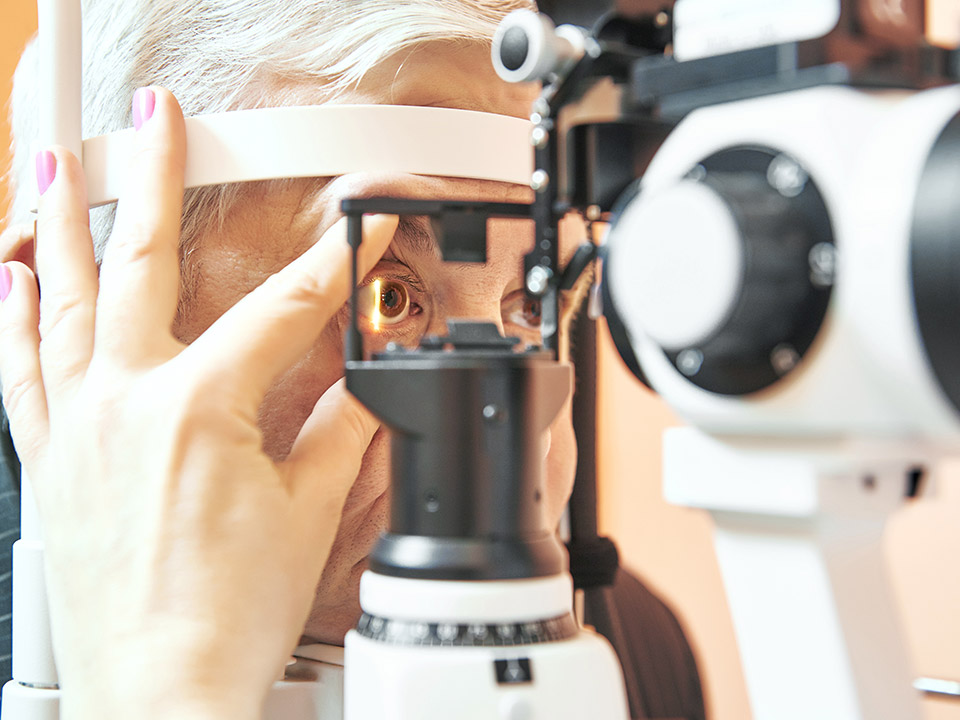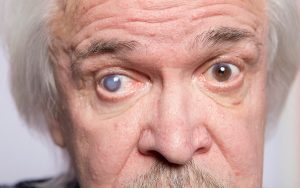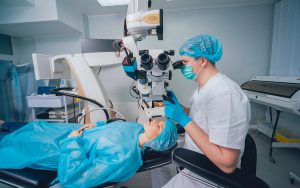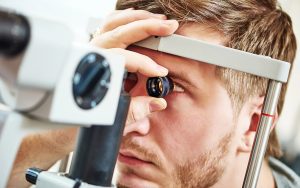Glaucoma and High Blood Pressure

To understand the relationship between high blood pressure and glaucoma, you will first need to know what these two medical conditions are.
Glaucoma is a progressive eye disease where the eye’s excessive fluid pressure damages the optic nerve cells. In North America, it is a leading cause of blindness. The optic nerve, which has over a million nerve fibers, connects your eyes to your brain. This critical nerve’s function is to transfer the images you see with your eyes to your brain.
The retina and optic nerve fibers combine to provide sight. High intraocular pressure (IOP), which is pressure in the eyes, can cause damage to your nerve fiber layer. Over time, this high IOP can kill the nerve fibers, leading to decreased vision.
And if left untreated, glaucoma could lead to vision loss. Some medical experts believe that some kinds of glaucoma might be because of the lack of enough blood flow to your eye’s optic nerve.
And that is why this entry will focus on the connection between hypertension and glaucoma. Patients and people at risk will finally understand the facts to help protect themselves better.
Blood Vessel Damage and Hypertension
Hypertension, also commonly referred to as high blood pressure, can make elastic blood vessels firm. When your blood vessels become hard or firm, your blood pressure will rise, which could accelerate atherosclerosis (the formation of plaque in your arteries’ walls).
Atherosclerosis typically results in blood vessel obstruction, which, in turn, can lead to strokes, heart attacks, and several severe medical conditions. Additionally, your blood vessels might weaken over time because of hypertension, and weak spots may develop.
These weak spots in the vessels collect blood and eventually become aneurysms. Aneurysms can leak blood and burst, resulting in organ damage.
Connection Between Hypertension and Glaucoma
A while back, some believed that mild to medium symptoms of high blood pressure was good for glaucoma. High blood pressure means a good blood flow to your eye’s nerve tissues.
However, new studies confirm that long-term hypertension can increase your risk of developing glaucoma. Many experts stand by the fact that hypertension is one of the main risk factors for glaucoma. High blood pressure can cause blood vessel damage in your eyes to avoid having to compensate for the blood flow changes in the eye when IOP increases.
Fluctuations in OPP (ocular perfusion pressure) from low or high blood pressure can also cause unstable oxygen supply and ocular blood flow, eventually leading to glaucoma.
Some patients with glaucoma have altered ocular blood flow autoregulation. They also have more generalized vascular dysfunctions like cold extremities, a syndrome commonly known as primary vascular dysregulation.
Traditional Risk Factors
Glaucoma’s traditional risk factors include increased eye pressure, ethnicity, age, and family history. As you can see, there’s clear evidence that too much eye pressure can eventually increase the risk of glaucoma.
However, the risk can also increase as you get older and in people of Hispanic, Asian, and African descent.
Unfortunately, out of all the traditional risk factors highlighted above, only elevated eye pressure is what doctors can treat. With that said, high blood pressure alone does not cause glaucoma. Most people with high eye pressure may never develop glaucoma. Additionally, various population studies have shown nearly 40% of folks that suffer from glaucoma have normal eye pressure levels.
Even those with glaucoma because of increased eye pressure levels typically have normal eye pressure roughly 35% of the time. While eye pressure levels are important when identifying glaucoma, it does not fully explain why the condition develops in all patients.
Ocular perfusion pressure, or OPP, is the relationship between blood pressure and eye pressure. Evidence shows that this is glaucoma’s strongest risk factor.
Suppose you have low blood pressure, especially with elevated eye pressure. In that case, it gets harder for blood to flow into the eye to supply it with the nutrients and oxygen it requires and eliminate waste materials. But, even in patients with normal eye pressure levels, their BP might be naturally low enough to deprive their eyes of enough blood flow.
Does BP Medication Affect Glaucoma Symptoms?
Taking hypertension medications can negatively affect the eyes of a patient suffering from glaucoma. People with glaucoma usually have elevated eye pressure. So, if their blood pressure drops drastically (which can happen in patients taking BP medicine), it can negatively impact the eyes. The patients’ blood will have trouble getting by the eye’s high pressure to deliver nutrients and oxygen and help eliminate waste materials.
Usually, the body adapts to blood pressure changes and body position to help maintain constant blood circulation to all the crucial areas of the body, like the eyes and the brain. For some people, their bodies might sometimes be unable to adjust the blood circulation appropriately, so the tissues will not have sufficient nutrients, resulting in damage over time.
Studies have also shown how nitrates and blockers can be linked to lower IOP. However, the same studies also show no link between other high blood pressure medications and IOP. The study was dubbed EPIC (European Prospective Investigation into Cancer).
Takeaway
Patients can improve lower OPP if they increase blood pressure or lower eye pressure. While there is strong evidence that you can treat glaucoma by decreasing eye pressure, there lacks enough medical data to support the increase of BP to treat all patients suffering from glaucoma.
In fact, it turns out it could even be more detrimental to other body parts if you increase the blood pressure.
However, with that said, calculating OPP and monitoring BP can still be very helpful when treating people with glaucoma, especially if the condition is getting worse despite adequate control of eye pressure.
If the eye’s perfusion pressure is low, it is vital to seek a doctor’s advice on how this can influence the treatment and risk for glaucoma.
Similarly, people with high blood pressure should get regular eye exams for optimum health. Our qualified eye doctors are trained in the diagnosis and maintenance of glaucoma. Do not hesitate to get checked out.




